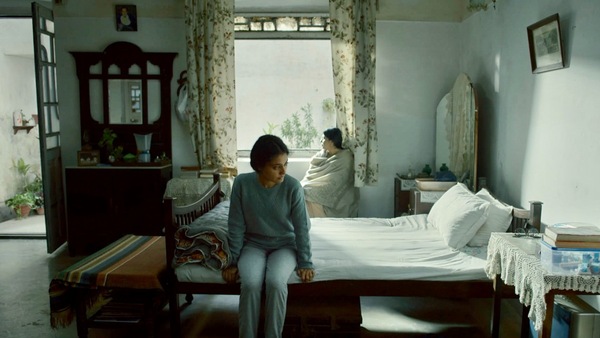Shoebox review: Revisiting Allahabad through an abandoned single screen
Faraz Ali’s arthouse film, which was a part of the MAMI Mumbai Film Festival, spotlights what an old city loses to embrace its new, smart avatar.

Last Updated: 01.56 PM, Mar 08, 2022
STORY: With development activities underway in the newly-named Prayagraj, the owner of a single-screen cinema and his daughter struggle to keep the place running in the face of gentrification and financial burdens.
REVIEW: Like Allahabad became Prayagraj, plans are afoot to turn the once bustling Palace Theatre into a shopping mall. Director Faraz Ali’s arthouse film Shoebox uses the charms of slowness to tell a heart-wrenching tale of loss that a city suffers while it transitions into a fast-paced ‘smart city’, where utility takes precedence over sentimental value. Defying the dizziness of nostalgia, the film throws light on confrontations, an unspoken bond between a father and his daughter, financial anxiety and a recurring feeling of displacement. It relies on a non-linear style to narrate the motifs of memory that we associate with a place, its people and culture, and their gradual disappearance.
Mampu (Amrita Bagchi), who’s pursuing her PhD in Pune, is forced to rush back home to attend to her ailing father Madhav Chatterjee (Purnendu Bhattacharya). He used to run this successful single-screen theatre in the heart of Allahabad, which is now in a shambles. An art-loving Bengali family, they have lived in Uttar Pradesh for a long time. Mampu’s grandfather was a sarod player, while running Palace Theatre was nothing short of an ardent passion for Madhav. Amitabh Bachchan-starrers and reruns of other massy films meant business ran full-swing at this cinema during its heyday, while Madhav and his assistant Rafeeq bhai (Zia Ahmad Khan) took care of every nitty-gritty at the premise.
During the 1-hour-38-minute runtime, the narrative travels back and forth to precisely dovetail fragments of Mampu’s childhood days - the sudden death of her mother (Tapasya Dasgupta), the old house they live in, their Premier Padmini, a swaying kite, vintage projector reels and the shoebox that she used to make a mini replica of Palace Theatre with the help of her school buddy Kaustabh (Ashutosh Sohan). Grief is a constant in the film - not just for deceased loved ones, but also for the disappearing traces of a city’s distinctive culture. One may ask, what’s in a name? Holding onto intangible heritage is often considered a virtue of one who dwells too much on the past and is averse to progress and development, which is now measured in terms of tall buildings, flyovers and multiplexes. Are we to battle gentrification, then? While Mahakumbh and the Triveni Sangam are still symbolic of the iconic city, bulldozing a rusty old building at the chowk seems essential to give the place a facelift it deserves.
Handpicked vignettes of Allahabad, the sounds of the city’s composite culture and a muted colour palette complement the endearing storyline that the makers of Shoebox have woven. There are moments in the film that will remind you of Giuseppe Tornatore’s 1988 gem Cinema Paradiso, but the Faraz directorial, co-written by Noopur Sinha, is nuanced, refreshing and uncannily personal.
A gripping watch, the film celebrates the deep yet complicated bond that we share with family, friends and our place of birth. Be it Mampu’s repeated attempts to make her stubborn father give up smoking or Kaustabh refusing to support his brother’s (Ashok Pathak) dishonest political agenda, the characters are often torn between empathy and what is considered a more practical decision. The burden of adapting oneself to changing times and the pressure to let go of something precious remain the narrative’s focal point. No wonder, you identify with the characters and circumstances they find themselves in.
VERDICT: A treat for lovers of meaningful cinema, Shoebox scores on its subtle yet poignant style of storytelling. Watch the film for Amrita’s splendid acting, and the sights and sounds of Allahabad. Don’t miss the references made in the film to writer Neelum Saran Gour’s book Three Rivers and a Tree: The Story of Allahabad University.
*Reema Gowalla is an independent arts and culture journalist, who mostly writes about theatre and independent cinema, and sometimes also delves into culinary heritage.
Subscribe to our newsletter for top content, delivered fast.
